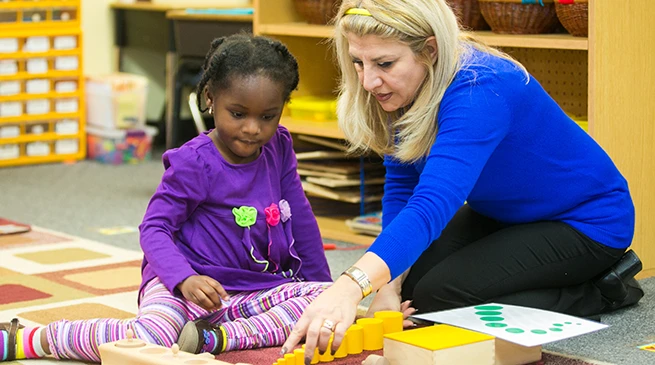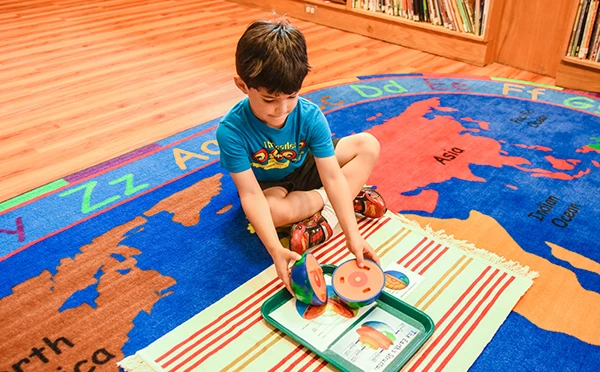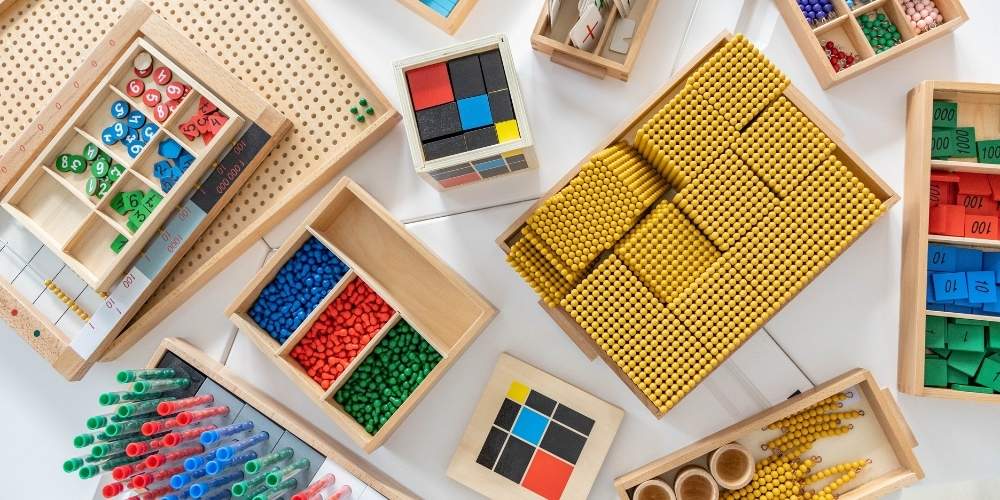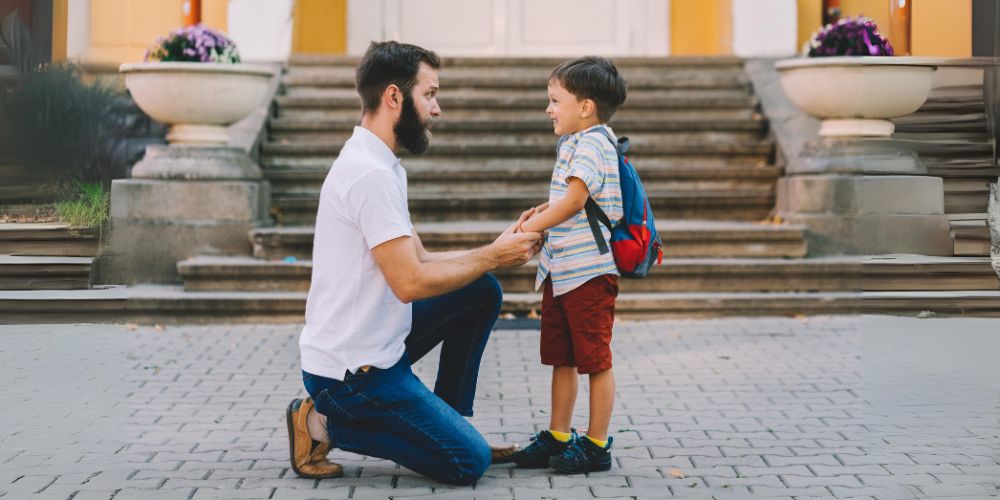Montessori Education provides a unique approach to early childhood education that differs from traditional daycare or child care. The Montessori approach emphasizes the child’s natural development and learning through hands-on activities and independent exploration. In contrast, traditional daycare or child care may focus more on providing basic care, supervision, and activities to keep children occupied.
Philosophy of Montessori vs. Daycare is Key Difference
One key difference between Montessori programs and traditional daycare is the philosophy and approach. Montessori classrooms are designed to facilitate learning and exploration, with carefully chosen materials that allow children to work independently and develop their skills and interests. The classroom environment is calm, organized, and aesthetically pleasing. In contrast, traditional daycare or child care settings may be less structured and may not have as many opportunities for learning and exploration.
Role of Teacher as Guide
Another significant difference is the role of the teacher. In a Montessori classroom, the teacher acts as a guide and facilitator, rather than a traditional “instructor.” Teachers observe children’s interests and abilities and provide materials and activities to support their learning. They also encourage independence and self-direction. In traditional daycare or child care, the teacher may have a more direct role in leading activities and providing instruction.

Individualized Learning
Montessori Education offers a range of benefits for growing children. One of the key advantages is individualized learning. Montessori programs focus on each child’s unique interests, needs, and abilities. Teachers provide personalized instruction and activities, allowing children to learn at their own pace and in their own style. The Montessori approach also emphasizes hands-on learning, which encourages children to engage with their environment and build a deep understanding of the world around them.
Social and Emotional Development
In addition to academic skills, Montessori education helps children develop social and emotional skills. Montessori classrooms often have mixed-age groups, which provide opportunities for children to learn from and with their peers. Children also learn to communicate, collaborate, and resolve conflicts in a supportive and respectful environment. The Montessori approach encourages children to take responsibility for their own learning and to develop self-discipline and independence, which can help them build confidence and self-esteem.
Academic Introduction through Hands-on Learning


While traditional daycare can provide basic care and supervision for children, it may not offer the same level of benefits that a Montessori education provides. Traditional daycare may not provide as many opportunities for hands-on learning or individualized attention as Montessori education does. In many daycare settings, children may engage in passive activities like watching TV or playing with toys, rather than actively exploring and learning. Traditional daycare may not provide the same level of support for social and emotional development as Montessori education does. Similarly, traditional daycare may not provide the same level of academic rigor or breadth of subjects as Montessori.
Interested in learning more about the benefits of a Montessori Education? Check out Children’s Manor & Magnet Montessori Schools. We have 10 locations across Maryland in Baltimore, Harford, Howard, and Montgomery Counties. Learn more.
Conclusion
In conclusion, Montessori primary education provides a unique and effective approach to early childhood learning, helping children develop academic, social, emotional, and practical skills that will serve them well throughout their lives. While traditional daycare can provide basic child care and supervision for children, it may not offer the same level of personalized attention, hands-on learning, and social and emotional development as Montessori primary education does.
Contact Us
"*" indicates required fields





